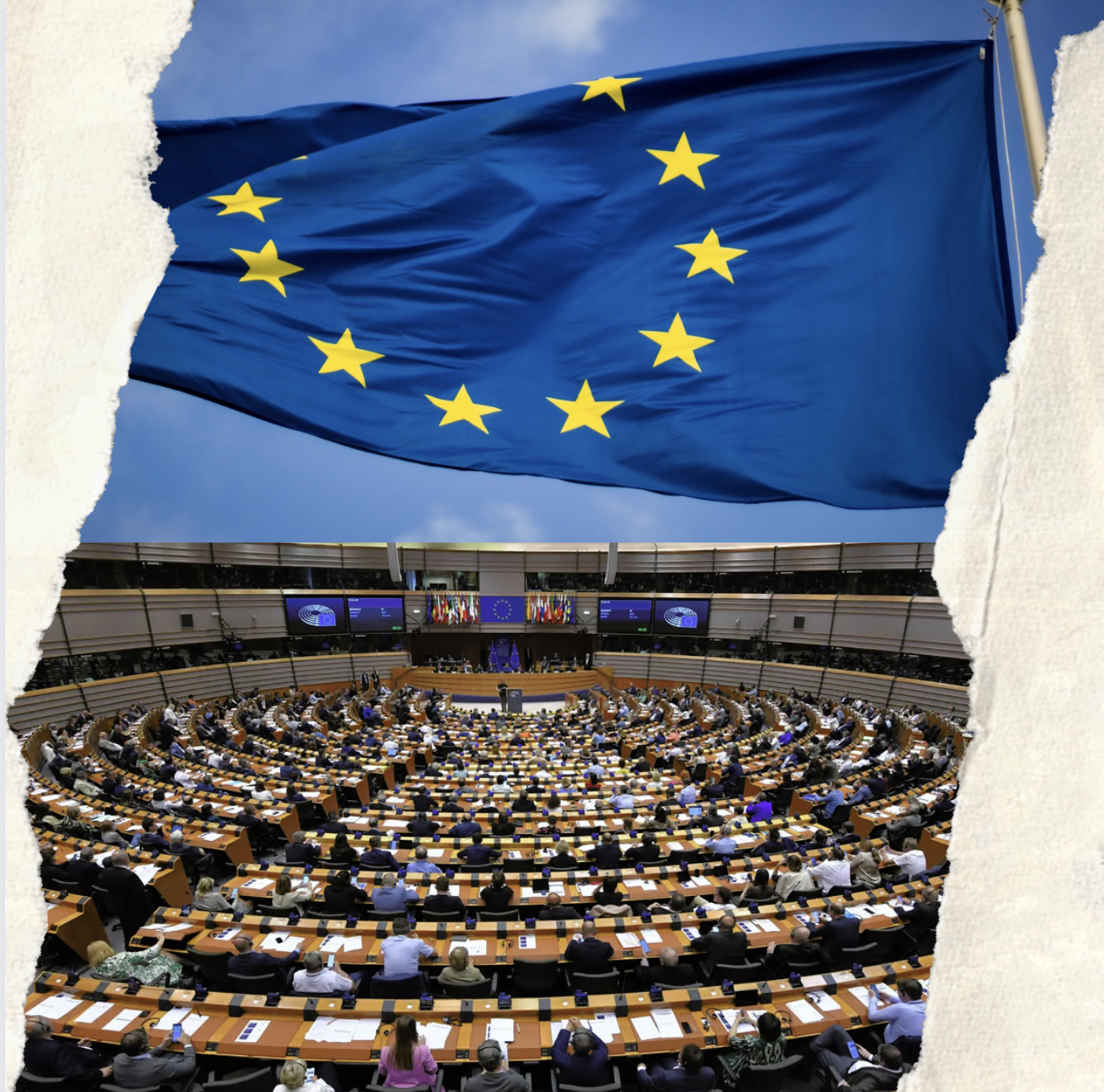Shaping Our European Future: Beyond Borders and Ballots

While all attention is focused on the formation of the new government, some overlook that in June, we’re heading to the polls again for the European Parliament elections. In the past, politicians were quick to talk about European regulatory burdens, the back-and-forth between Brussels and Strasbourg, and how ’they’ had too much control. But with a looming climate crisis, a war on our continent, and the potential re-election of “America first” Donald Trump, we can’t afford to dwell on these trivial matters. The challenges we face can only be tackled across borders. Let’s not allow these elections to be mired in side issues, but let’s focus on the fundamental question: what lies ahead for our continent?
The European Dream
The European Union is not just a political entity but a testament to the power of shared aspirations. It’s a grand democratic project that emerged from the ashes of the First and Second World Wars. What began as an internal market for coal and steel in 1951 has evolved into a beacon of peace and solidarity among once-warring nations. Under the European promise of a free, democratic rule of law, countries have united to address issues that affect us all. This intrinsic value of Europe – where collective interests prevail – is a testament to the power of our shared project and demands our utmost attention and engagement.
This highlights a significant shift from previous elections: even parties that once denounced the EU and capitalized on Euroscepticism to rally voters can no longer ignore its importance. Whereas they once advocated for exits, we now see the aftermath of Brexit revealing that the grass isn’t greener on the other side of the North Sea. Economists estimate the annual cost of the UK’s EU departure exceeds 100 billion euros. Hence, it’s unsurprising that radical right-wing parties like the PVV, France’s National Rally, or Italy’s FDI no longer openly advocate for leaving the Union. Instead, they seek to undermine it from within, aiming to weaken its foundations and diminish its influence.
What’s ahead of us?
As we approach the upcoming campaign, it’s clear that the central theme should be the democratization of the Union itself. Our directly elected Members of the European Parliament still lack the power to propose legislation, the President of the European Commission remains indirectly elected, and citizens can’t vote for candidates from other countries, despite MEPs making decisions affecting all EU residents, irrespective of nationality. This imbalance is not conducive to a strong and united Europe. It’s time to shift focus from more or less Europe to the kind of Europe we desire, necessitating a stronger emphasis on democracy. Strengthening democratic processes within the Union not only amplifies the voice of European citizens but also fosters trust and engagement in the European project. A more democratic Union would counter attempts by certain parties to weaken its foundations, and it’s our responsibility as European citizens to advocate for this change.
Let’s not dwell on the Brussels-Strasbourg shuttle in these elections – a matter outside the European Parliament’s remit – but instead, let’s reflect on the EU’s vital role in promoting peace, democracy, and shaping the future of our continent. Europe is a collective endeavour, and how politicians envision this European dream offers European citizens a meaningful choice on 6 June.
Interested in how politics and climate are closely connected with each other?
